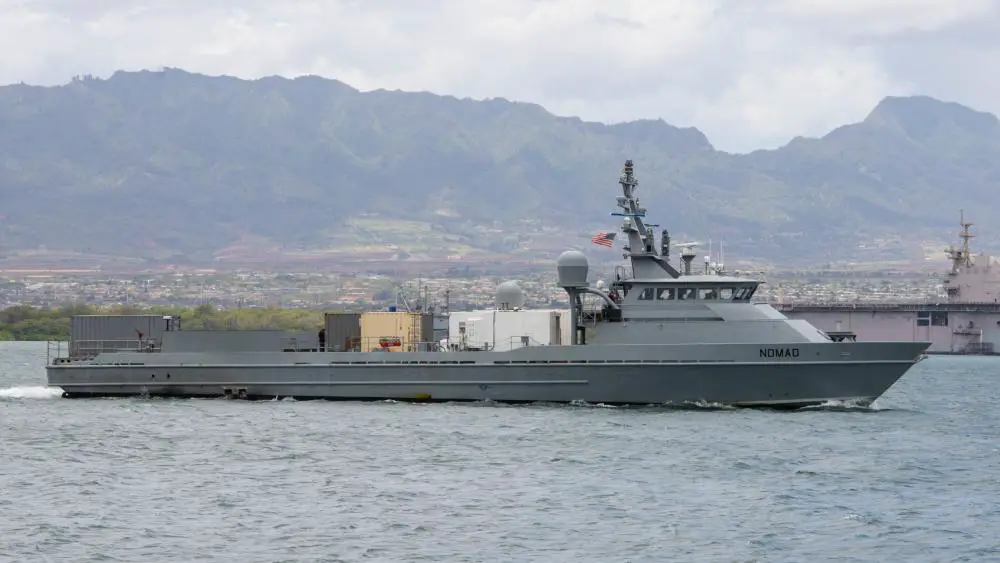The U.S. Navy successfully completed a milestone “no touch” 720-hour continuous power demonstration of a diesel generator for Unmanned Surface Vessel (USV) operations. Demonstrating the capability and durability of engine plants to operate for extended periods without human intervention at sea is a critical enabler for the continued expansion of unmanned operations and development of the future manned-unmanned Hybrid Fleet concept. The generator test was mandated by a congressional requirement inserted in the 2021 National Defense Authorization Act, directing the Navy to achieve the 720-hour test milestone before the Large USV could proceed into formal development. The congressionally directed testing included 100 hours of pre-testing before the 720-hour demonstration phase commenced. During the demonstration phase, no human intervention and no preventative or corrective maintenance on the equipment was allowed.
“This testing achievement is a key milestone for the Navy’s unmanned surface vessel programs and allows the Navy to move forward with developing and acquiring the Large Unmanned Surface Vessel (LUSV), specifically,” said Capt. Kevin Smith, Program Executive Officer, Unmanned and Small Combatants.
This land-based test was conducted by Bollinger and Carter Machinery on behalf of Caterpillar in Chesapeake, Virginia. The Navy’s Program Executive Office for Unmanned and Small Combatants (PEO USC) and the Unmanned Maritime Systems Program Office (PMS 406) oversaw the successful test completion. The rigorous testing validated that the 1550 kw Caterpillar 3512C model engine demonstrated sufficient mechanical reliability to support the requirements of an unmanned ship to operate for 30 days. The LUSV will deliver adjunct missile magazine capacity to the Fleet as part of the Navy’s Distributed Maritime Operations concept. The LUSV is envisioned to be greater than 200 ft. in length with a full load displacement of approximately 1,500 tons. LUSVs are intended to be low-cost, high endurance, modular USVs that can employ a variety of payloads.
In 2020, six LUSV conceptual design contracts were awarded to refine program requirements and to work with industry to provide feedback on the LUSV requirements. The Bollinger team is the first to successfully complete the 720-hour no-touch electrical generation and distribution system demonstration. It is now eligible for use on the LUSV program. Five other LUSV teams are currently in test with their engine systems to meet the 720-hour performance requirement. PEO USC and PMS 406 lead the Navy’s efforts to develop, deliver and sustain capable and affordable unmanned maritime systems to meet Fleet requirements.











